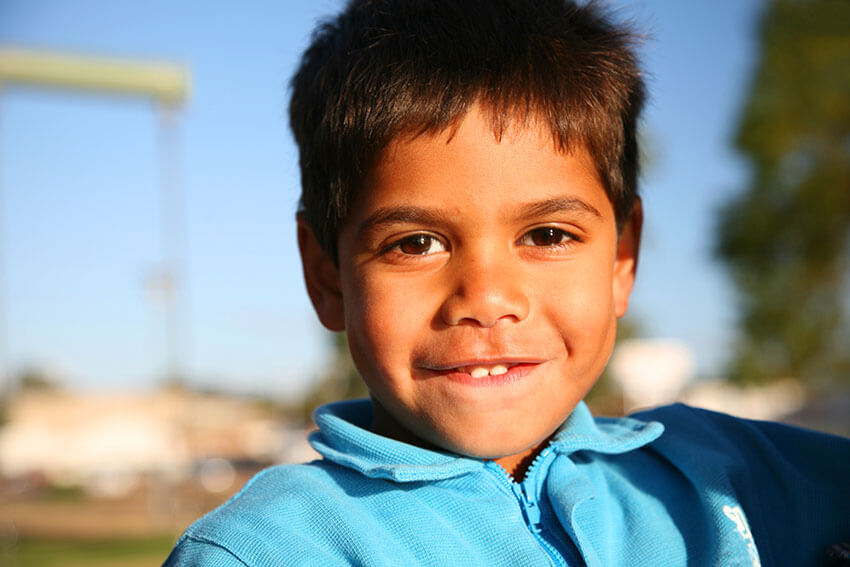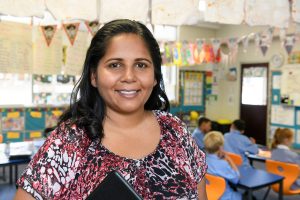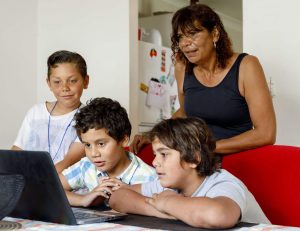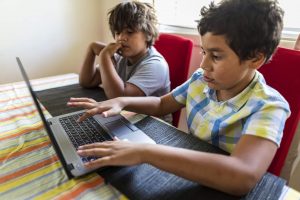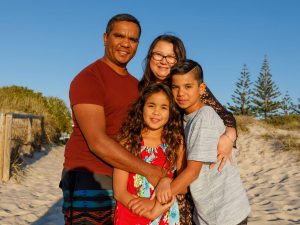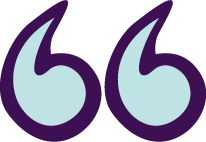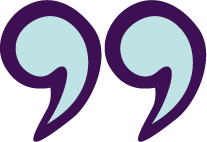This section of Rock Solid talks about:
- How to go about choosing a school
- School options
- Moving from primary to secondary school
- If you’re thinking of changing schools
- Key terms explained
Choosing the right school for your child with special needs can be a big decision.
This section talks about how to go about choosing a school, different school options, and the big move from primary to secondary school. Families also share their stories of different types of schools.
Choosing a school that suits your child will really help them to achieve their potential at school.
Learn about the language used to talk about special needs
The terms used by schools and support services might be confusing to many parents and carers. Rock Solid uses some of these words too, in explaining how it all works. When we use one of those terms, it is in bold. These words are listed at the end of this section under ‘Key terms explained’ with a short explanation of what they mean.
How to go about choosing a school
Different schools suit different children, so it’s important to look around before you decide where to send your child.
Every child is different. And schools can also be very different – in their size, the environmental space, how they teach and the school culture. Some schools have worked a lot more with Aboriginal children and families in culturally appropriate ways. Some have worked a lot more with children with special needs.
Your child has the right to attend a mainstream school – a school that any child can go to. Depending on their disability or special needs, your child might also be able to go to one or more types of specialist school.
You might choose a school based on your child’s particular needs, and the programs that school offers. You might choose a school because it’s local, or because your child has siblings or cousins there. There are many reasons why families choose a school for their child.
Ask around and get advice
It’s a good idea to start thinking about choosing a school a year or more before your child starts. You could ask your child’s kindergarten teacher (or their primary school teacher if they’re moving to secondary school) what kind of school they think would work for your child.
If your child sees a speech therapist, physiotherapist or some other professional, you could ask what they think. It can also be helpful to ask other families or community members, or disability organisations.
Visit some schools and see for yourself
It can help to know what other people think about schools in your area. But their views might be based on old information. In the end, only you can decide what will work for your child and family.
When Aunty Faye was looking for a new secondary school for her boy, she went to visit an alternative program within a Catholic school that other people had advised her against. She wanted to make up her own mind.
“Don’t listen to the first thing anybody tells you. You investigate. You go and talk to people. To me, I followed my heart, because I want something for my boy. And I did! And I couldn’t wish for anything better.” – Aunty Faye
It’s a good idea to look at a few different schools. Most schools have open days in April or May. Anyone can come along, and you can bring your child with you.
If you want to find out more about a school after the open day, or any time in the year, you can ring up and make a time for a yarn with the Principal or Assistant Principal. Ask them to show you around the school, and tell them about your child. Ask for examples of how they support students that have similar experiences or special needs to your child.
School options
Every child has the right to go to a mainstream school. Your child might also have the right to go to a specialist school. There are a few different types of specialist schools. Or you might be able to choose ‘dual enrolment’, where a child spends part of the week in mainstream, and part in a specialist school.
These are the main school options for children with special needs:
Mainstream schools
Your child has the right to attend the government school nearest your home – their ‘local neighbourhood school’. If you prefer a school further away, you can apply for a place there.
Some families choose a school because there are other Aboriginal families or Koorie Education Workers there, or because the school might be more inclusive and respectful of Aboriginal culture.
Many families choose a mainstream school so that their child can be with siblings or other family members. Having family amongst the students and staff makes school easier for Janine’s younger son, and for her too.
“He’s got his own little group there. But [his big brother] checks on him every day, makes sure he’s alright. I think that would be the only contact they have. Going to school together, and he checks on him, and then they go home together … Luckily it’s more or less the family that is here, and they’ve all known my kids, and been in the school … It was really just a lot less stress.” – Janine
Specialist schools
Some families choose a specialist school because of their child’s particular needs, and the programs the school offers. There are specialist schools for children who are Deaf, for children with physical disabilities, for children with autism and for children with an intellectual disability.
Your child might need to do tests, to see what kind of school will suit them. They might do an IQ test, which is to find out their understanding level. If your child scores above 50 in the IQ test, they may be able to attend a ‘special school’. If they score below 50, they may be able attend a ‘special development school’. Both schools offer learning, but the curriculum is different. Special development schools focus more on basic life skills and communication.
Stacey has seen a huge improvement in her young boy’s development since he started school.
“His fine motor skills are starting to develop a hell of a lot now. He can pick shapes up and see where they go and put them in the hole. Things like that. I didn’t think he’d ever do it … He gets on the bus and smiles, and says, ‘Goodbye!” He can even put his own seatbelt on. He’s talking more … he can actually tell me what he wants now, rather than screaming at me and just pointing.” – Stacey
Uncle Henry’s oldest girl has just started secondary school. She is picked up from home by the school bus, which has supported her attendance at school.
“We were going to send her to [the local mainstream school] but she didn’t like that. So we had to find a school she liked. I’ve tried the school there, and she tried it. And turned out she fell in love with it! She said she was nervous when she first went there … But after a week went past, she loves it. She wants to go all the time. She likes it. All the kids are up there are her friends and that. It’s good.” – Uncle Henry
Catholic and independent schools
You could also try a Catholic or independent school. Most are mainstream, but there are some specialist schools.
There are also some mainstream schools that also have alternative programs. Some alternative schools or programs might really suit some children with special needs, like Aunty Faye’s boy.
“It’s for children that’s having difficulty learning – because there’s smaller groups, and two teachers in each class that can give them that personal attention. If I’d have listened to [the local secondary school] I think my son would have dropped out by now … [But instead] he’s going in leaps and bounds. I’m just so proud of him!” – Aunty Faye
Alternative educational pathways programs
Towards the end of your child’s secondary schooling, the school might offer them an alternative educational pathways program. Not all programs are accessible for people with disabilities, but they can be a good pathway to other options like TAFE.
Some are based in schools, others in community services. They often have smaller classes, and are more student-focused than most mainstream schools. There are some programs especially for Aboriginal young people.
Find out about alternative education pathways from the Career Advisor, Wellbeing Coordinator or Koorie Educator at school. Or you can ask your local Co-op, local Council, Department of Families, Fairness and Housing (DFFH) or Aborginal Victoria.
Moving from primary to secondary school
Children need a lot of support for the move from primary to secondary school. Finishing primary school and starting secondary is a big change for any child. If your child has special needs, it can be even bigger. They need lots of help from you and from school.
When your child is in grade six, their school will run ‘Transition sessions’ or something similar. People from the primary school and local secondary schools talk and give out information, to help children and families understand what the move from primary to secondary might be like. They can be a good way to find out about local secondary schools.
Look at secondary school options
Secondary schools usually hold open days around the middle of each year. You can take your child, so you both get a feeling for what each school is like. Your child might want to go to the same school as their mates. Different schools will work for different children. Sometimes, children who have been in a mainstream primary school go to a specialist school for secondary school. It’s a good idea to look at all the options.
Make sure your child gets the right help in school
For some children whose disability is considered ‘moderate to severe’, their school might be able to get extra funding to help them.
If your child’s primary school is getting extra funding to help support them, this is re-assessed in Grade 6. This is to check if your child’s needs have changed, and plan the help they can get in secondary school. It’s important that your child gets to all the appointments for their re-assessment, or they might not get the extra help they need in secondary school.
The information from your child’s assessment should be sent to the secondary school you choose for your child. The people who do the assessment organise that – but it is worth checking that the secondary school has got the information. The school should then meet with you before school starts, to plan the extra help for your child.
Older children might need different help
For most children, secondary school is very different from primary school. The school is often bigger, with more teachers and different classrooms for each subject. Most children find it hard going at first, getting themselves from class to class, and having lots of different teachers.
Your child might need different help from what they got in primary school, because of these differences. Also, their abilities, health or care needs might have changed since primary school.
Sometimes there are more facilities in secondary school, like a Deaf facility or a Koorie centre. But sometimes, the secondary school might get less funding for your child than their primary school did. That’s why it’s so important to plan for the help your child will need, before school starts.
Sometimes teenagers might want to be helped in a different way from when they were younger. Often, they might want more of a say in choices about their education.
If you’re thinking of changing schools
If your child is having a hard time at school, there are things you can do to help sort it out. But sometimes, a move to a different school environment can be really positive. If your child is not settled at school, you might be thinking of moving them.
Try to sort out the problem first
A new school might be the right path for your child. But changing schools can be hard on children, especially if they have good mates or family members at their school, or if the new school is outside your local area.
Before you decide to change schools, it’s important to know that you have the right to bring up any concerns with the school your child is at now, and to get help with sorting them out.
Make sure school understands your child’s needs
The problem might be that the school isn’t giving your child the right help. This can show up in different ways. Some children go quiet at school. They might not be learning much, but they might not get a lot of attention because they’re not mucking up. Other children who need more help might muck up, because they’re embarrassed or frustrated.
That’s how it was for Stacey’s older boy. Luckily, Stacey moved him to a school that picked up his learning disability, and sent him for assessment. When the diagnosis came back, it changed how Stacey and his teachers saw him. He wasn’t trying to muck up – he just needed a different kind of help, so he could learn.
“Since we moved school, they’ve had an evaluation done on him, and it’s come back that he’s had receptive language disorder. We always thought it was him mucking up, and being a naughty kid. And couldn’t take in what school was trying to learn him … I’m rapt. I can’t believe the change in him, now that he’s actually in a school that knows how he’s thinking, and knows what’s going on. And knows that mum’s going to back the school up. That mum’s there. ” – Stacey
Sort out where your child will get the right help
All through years eight and nine, Aunty Faye knew that her boy wasn’t getting the help he really needed. He wasn’t getting in trouble, but he wasn’t reaching his potential. She was worried he might end up dropping out.
“For two years I’ve been in and out, ringing up, saying, ‘Why is he so low in this area?’ And I’d go in there and meet with the teachers, and they’d go, ‘We’ll put this in place’ – put it on paper. But at the end of the day, it didn’t apply in the classroom.
The last meeting I had, they said, ‘We’ve got this program here’. I said, ‘Stop right there.’ I said, ‘Can you honestly tell me there will be a change by the end of the year? Because this boy’s education is important to me. And I’d put him somewhere else to help him.’ They said that might be a good idea. I said to them, ‘This should have come out earlier, not in year nine. Because children are like big sponges. They fill so much, if they’re shown and taught the right way.” – Aunty Faye
Sometimes you might be able to sort out a problem like this. If school can understand what help your child needs, and can really give them that help, they might be able to stay put.
Aunty Faye tried very hard to sort the problem out with the school. But in the end she decided her boy needed a different school, that would help him more. She looked around, and chose an alternative program in a Catholic school, where he’s now going very well.
Help your child if they change schools
Some families change schools because their child’s needs have changed. Rodney and Suzanna’s younger boy started primary school in a specialist school. But when he started talking, they moved him to a mainstream school where there were lots of other Aboriginal students.
Whatever the reason for moving school, your child will settle in much quicker if you can help. Rodney and Suzanna took the change one step at a time. They also had a big say in the help their son got at his new school.
“It was a slow process. It wasn’t just jump from one school to another. It was one day a week, then two days a week. Next term three days a week. It took us a whole year, and then the year after, we started …
And we chose the integration aide. The person we chose is a very well known person within the Indigenous community, and the community trusted her. She came home and met us as a family, and she got to know our boy before he even started at school.” – Suzanna
Key terms explained
Accessible
When people can get into a place, or take part in an event, program or activity, whether or not they have special needs. If everyone can get there and be part of something, then it’s accessible.
Alternative educational pathways program
Programs offered toward the end of secondary school, which can lead to TAFE or other training programs. Sometimes these are offered in school, sometimes in community agencies.
Assessment and re-assessment
A test or group of tests your child does to get information about their special needs. Sometimes an assessment can lead to a diagnosis, for example of a disability or a chronic illness. Re-assessment is done regularly for children with special needs at school, to check if their needs have changed.
Career Advisor
School staff member who can give advice on different education pathways for your child.
Curriculum
What children are taught at school, including the work they are asked they do in class and their homework.
Department of Families, Fairness and Housing (DFFH)
The Victorian government department that helps people with housing, disability and children, youth and family services.
Development
When a child gets new or stronger abilities, such as to talk, walk, read, or to get along with others. Young children with special needs might not get a diagnosis yet, but might be said to have a ‘developmental delay’.
Diagnosis
A name for your child’s special needs, which might be one or more types of disability or illness.
Disability services or organisations
There are many different kinds of disability organisations. Some can help your child with their development by providing therapy or equipment. Others can help you find information, get support or speak up for your child and family.
IQ test
A test done to work out your child’s understanding level. A common IQ test is the WISC (see below). Your child’s score from this can tell you whether they can go to a specialist school, and what kind.
Koorie Education Worker, Koorie Educator, Koorie education staff
A specialist worker, working in a school with children and their families. Schools might choose to employ a Koorie Educator, if they have a number of Aboriginal or Torres Strait Islander students and families in their school community.
Mainstream school
A school where all children can go, including children with special needs, if their parents or carers choose. There are mainstream schools that are state schools, Catholic schools and independent schools.
Physiotherapist
A therapist who works with children with a physical disability, asthma, arthritis or pain caused by problems with joints, muscles or nerves. They work in health and disability services. Your child might get funding from the NDIS to see a physio. Some specialist schools have a physio on staff.
Special needs
One or more differences between your child and most other children, which affects what they need so they can be well, move around, hear, see, learn, communicate or feel comfortable. Special needs can include disability, chronic illness and mental health issues.
Specialist school
There are specialist schools for children who are Deaf, for children with physical disabilities, for children with autism and for children with an intellectual disability. There are ‘special schools’, for children whose score on an IQ test is between 50 and 70, and ‘special development schools’ for children whose score is below 50. There are also some schools and alternative programs for children with behavioural issues, and for children who are having a lot of difficulties with learning.
Speech therapist or pathologist
A therapist who works with children with special needs that affect talking and communication. They also help children who have trouble swallowing food or drink. They might be based at the regional education department office, or in health or disability services. If your child’s school gets extra funding to support them, this can be used for them to see a speech therapist.
Transition
This is when a child moves from kindergarten to primary school, from primary school to secondary school, or from secondary school into other education or training. Children and families need a lot of help at these times, to sort out the right path and get the support for the next stepping stone in the child’s learning journey.
Wechsler Intelligence Scale for Children, or WISC
A common test for children who might have an intellectual disability or developmental delay. It can be done without reading or writing, and results in an IQ score, which represents a child’s ‘cognitive ability’, or understanding level.
Wellbeing Coordinator
A school staff member responsible for all students with special needs.
Useful links
Koorie Education Coordinator contact details
Koorie education resources for educators
Victorian Aboriginal Education Association
Victorian Aboriginal Child Care Agency
Deadly Story
Related topics
Welcome to Rock Solid
What school should do to help your child
What you can do to support your child’s journey
If there’s a problem at school
More information for the journey

